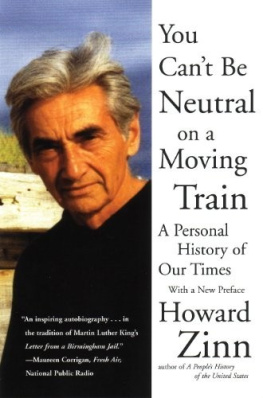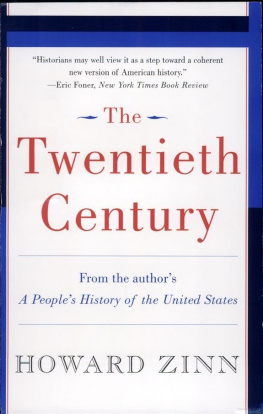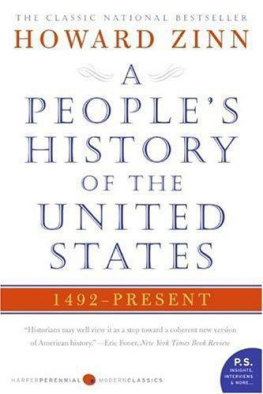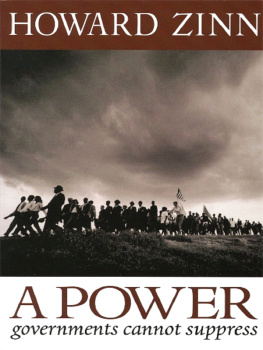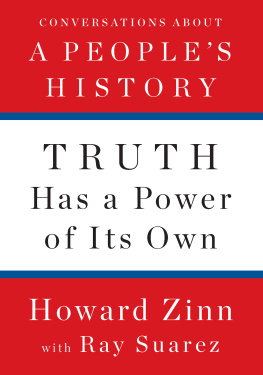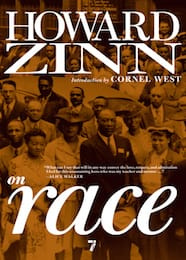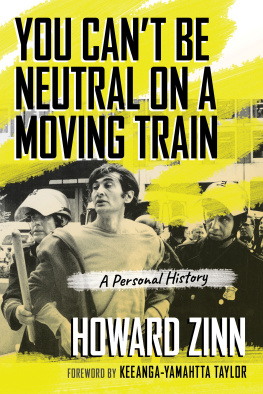Howard Zinn - You Cant Be Neutral on a Moving Train: A Personal History of Our Times
Here you can read online Howard Zinn - You Cant Be Neutral on a Moving Train: A Personal History of Our Times full text of the book (entire story) in english for free. Download pdf and epub, get meaning, cover and reviews about this ebook. City: Boston, Mass, year: 2010, publisher: Beacon Press, genre: Politics. Description of the work, (preface) as well as reviews are available. Best literature library LitArk.com created for fans of good reading and offers a wide selection of genres:
Romance novel
Science fiction
Adventure
Detective
Science
History
Home and family
Prose
Art
Politics
Computer
Non-fiction
Religion
Business
Children
Humor
Choose a favorite category and find really read worthwhile books. Enjoy immersion in the world of imagination, feel the emotions of the characters or learn something new for yourself, make an fascinating discovery.
- Book:You Cant Be Neutral on a Moving Train: A Personal History of Our Times
- Author:
- Publisher:Beacon Press
- Genre:
- Year:2010
- City:Boston, Mass
- Rating:3 / 5
- Favourites:Add to favourites
- Your mark:
You Cant Be Neutral on a Moving Train: A Personal History of Our Times: summary, description and annotation
We offer to read an annotation, description, summary or preface (depends on what the author of the book "You Cant Be Neutral on a Moving Train: A Personal History of Our Times" wrote himself). If you haven't found the necessary information about the book — write in the comments, we will try to find it.
Beacon Press is proud to publish a new edition of the classic memoir by one of our most lively, influential, and engaged teachers and activists. Howard Zinn, author ofA Peoples History of the United States,tells his personal stories about more than thirty years of fighting for social change, from teaching at Spelman College to recent protests against war.
A former bombardier in WWII, Zinn emerged in the civil rights movement as a powerful voice for justice. Although hes a fierce critic, he gives us reason to hope that by learning from history and engaging politically, we can make a difference in the world.
Amazon.com ReviewBy any standards, Howard Zinn has led a remarkable life as teacher, writer, and social activist, a life in which those three categories are viewed not as compartmentalized tasks but as part of a unified identity. You Cant Be Neutral on a Moving Train, a title taken from his advice to students about his take on American history and current events, is a powerful testament to that life.
It begins with his 1956 acceptance of a teaching post at Atlantas Spelman College, a school for black women that would soon be caught up in the civil rights movement. Zinn, who had already been radicalized on the streets of Brooklyn as a teenager, got caught up along with his students (who included the future head of the Childrens Defense Fund, Marian Wright Edelman, and author Alice Walker), and was kicked out in 1963 for insubordination. He moved to Boston University, where he became an outspoken critic of the Vietnam War, and would prove a constant thorn in the side of university president John Silber throughout the 1970s and 1980s.
Zinn writes in plain language that brooks no nonsense when it speaks of moral urgency, but he isnt above a sense of humor. Noting that the FBI was watching him constantly during the war era, he wryly observes that, I have grown to depend on them for accurate reports on my speeches. Individual scenes leap out at the reader: Zinns horror when he realized, years after WWII, that he had dropped napalm bombs on German troops; a meeting in a college classroom with the sister and parents of one of the victims of the Kent State massacre; Selma, Alabama, police beating blacks attempting to register to vote while federal agents stand by and do nothing. Through it all, Zinn writes, I see this as the central issue of our time: how to find a substitute for war in human ingenuity, imagination, courage, sacrifice, patience. --Ron Hogan
From Publishers WeeklyNoted left-wing historian Zinn ( A Peoples History of the United States ) believes that activism and education are inextricable, and his memoir illuminates a well-engaged life. Teaching at Atlantas Spelman College in the early days of the civil rights movement, he found allies in principled students like Marian Wright (now Edelman) and budding writer Alice Walker. He advised SNCC in Selma, Ala. He volunteered to fight the Nazis but, after Hiroshima, developed a skeptical pacifism he further exercised as a passionate opponent of the Vietnam War. Zinns narrative is oddly disjointed: not until late in the book does he recount his youth in the slums of Brooklyn, his discovery of Dickens, Marx and Steinbeck and his post-WW II years as a laborer and a 27-year-old college freshman. If Zinn is a bit Pollyannish, hes also inspirational, arguing that, because much has changed in history, We can be surprised again. Indeed, we can do the surprising.
Copyright 1994 Reed Business Information, Inc.
Howard Zinn: author's other books
Who wrote You Cant Be Neutral on a Moving Train: A Personal History of Our Times? Find out the surname, the name of the author of the book and a list of all author's works by series.

